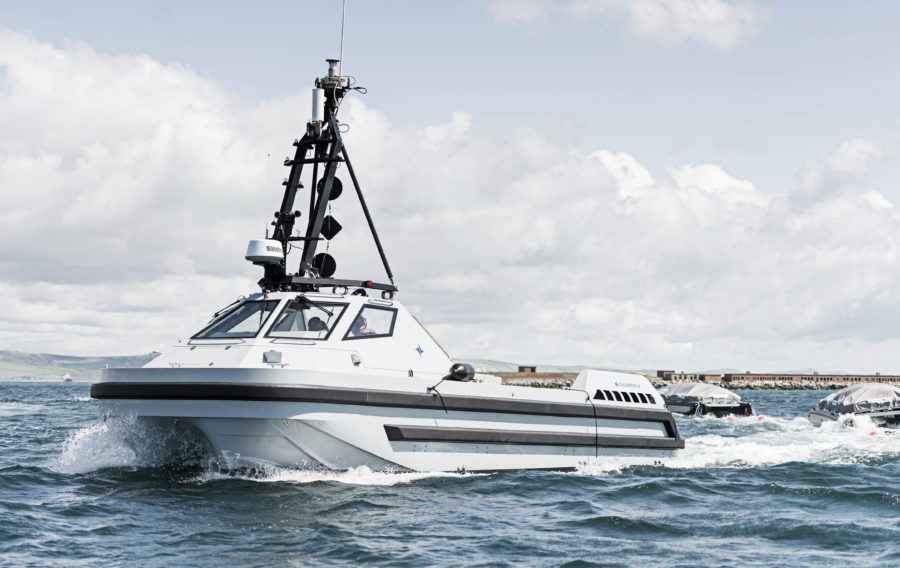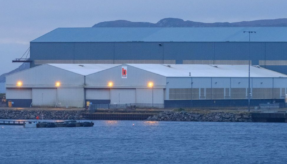
The Royal Navy has taken delivery of an autonomous minesweeper system that can safely clear sea lanes of mines, the Defence Minister Guto Bebb has announced.
The system has been designed and manufactured by Atlas Elektronik UK in Dorset, under a £13 million contract with the Ministry of Defence which has sustained around 20 jobs and created 15 new jobs with the company.
The system’s innovative and modernised technology has the ability to defeat today’s digital sea mines, which can detect and target military ships passing overhead. The sweeper system, which features a “sense and avoid” capability, could also work together with other similar autonomous systems for the common goal of making our waters safer.
The project also aims to demonstrate the viability of an unmanned system that can safely and successfully clear mines and which is designed to be operated from a land or ship-based control station and can be deployed from a suitable ship or port.
Over the last four months, the system has been put through its paces by Atlas Elektronik and Defence Equipment and Support team members and the Royal Navy’s Maritime Autonomous Systems Trials Team (MASTT).
The system was tested against a number of performance requirements, for example, how well it cleared mines, whether the autonomous system could successfully avoid obstacles and the overall system performance.
The system will now undergo a series of more detailed trials with the Royal Navy.
Defence Minister Guto Bebb said: “This autonomous minesweeper takes us a step closer to taking our crews out of danger and allowing us to safely clear sea lanes of explosives, whether that’s supporting trade in global waters and around the British coastline, or protecting our ships and shores.
“Easily transported by road, sea and air, the high-tech design means a small team could put the system to use within hours of it arriving in theatre. We are investing millions in innovative technology now, to support our military of the future.”
image © Crown Copyright
If you would like to join our community and read more articles like this then please click here.
Atlas Elektronik Defence Equipment and Support Guto Bebb Ministry of Defence Royal Navy







